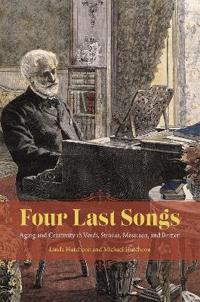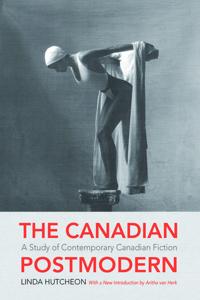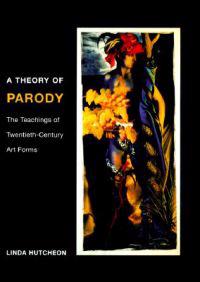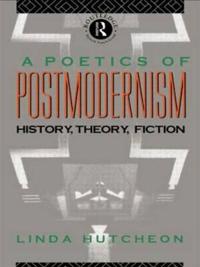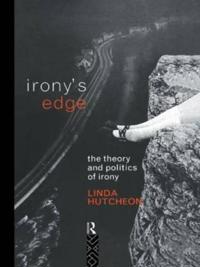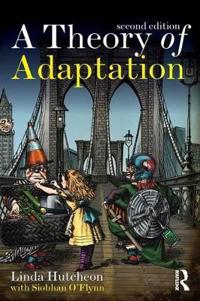Four Last Songs (Inbunden)
avLinda Hutcheon, Michael Hutcheon, Linda Hutcheon
ISBN: 9780226255590 - UTGIVEN: 2015-05Aging and creativity can seem a particularly fraught relationship for artists, who often face age-related difficulties at a time when their audience's expectations of their talents are at a peak. In Four Last Songs, Linda and Michael Hutcheon explore this issue through close looks at those who creat[...]
The Canadian Postmodern (Häftad)
avLinda Hutcheon
ISBN: 9780199001798 - UTGIVEN: 201212The postmodern novel was a surprisingly and often poorly understood phenomenon of the 1980s and 90s, in which many artists explored issues of how art represents the world. These works are characterized by a certain self-reflexivity, a determination to foreground the process of artistic creation, and[...]
A Theory of Parody (Häftad)
avLinda Hutcheon
ISBN: 9780252069383 - UTGIVEN: 200009In this major study of a flexible and multifaceted mode of expression, Linda Hutcheon looks at works of modern literature, visual art, music, film, theater, and architecture to arrive at a comprehensive assessment of what parody is and what it does. Hutcheon identifies parody as one of the major for[...]
A Poetics of Postmodernism (Häftad)
avLinda Hutcheon
ISBN: 9780415007061 - UTGIVEN: 198805Postmodernism is the name given to current cultural practices characterized by major paradoxes of form and of ideology. The "poetics" of postmodernism offered here is drawn from these contradictions.[...]
Irony's Edge (Häftad)
avLinda Hutcheon
ISBN: 9780415054539 - UTGIVEN: 199411The edge of irony, says Linda Hutcheon, is always a social and political edge. Irony depends upon interpretation; it happens in the tricky, unpredictable space between expression and understanding. Irony's Edge is a fascinating, compulsively readable study of the myriad forms and the effects of iron[...]
The Politics Of Postmodernism (Pocket)
avLinda Hutcheon
ISBN: 9780415280167 - UTGIVEN: 2002-05-16Working through the issue of representation, in art forms from fiction to photography, Linda Hutcheon sets out postmodernism's highly political challenge to the dominant ideologies of the western world.[...]
A Theory of Adaptation (Häftad)
avLinda Hutcheon
ISBN: 9780415539388 - UTGIVEN: 201207A Theory of Adaptation explores the continuous development of creative adaptation, and argues that the practice of adapting is central to the story-telling imagination. Linda Hutcheon develops a theory of adaptation through a range of media, from film and opera, to video games, pop music and theme p[...]
Narcissistic Narrative: The Metafictional Paradox (Pocket)
avHutcheon, Linda
ISBN: 9781554585021 - UTGIVEN: 2013-02-01

